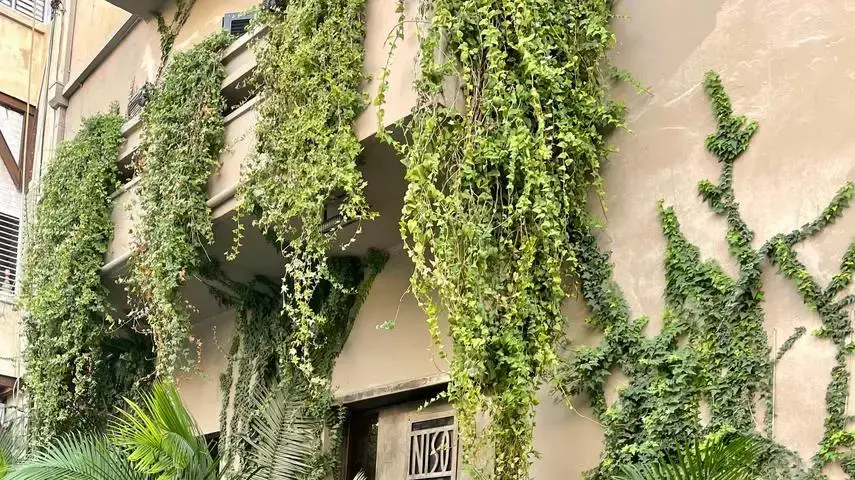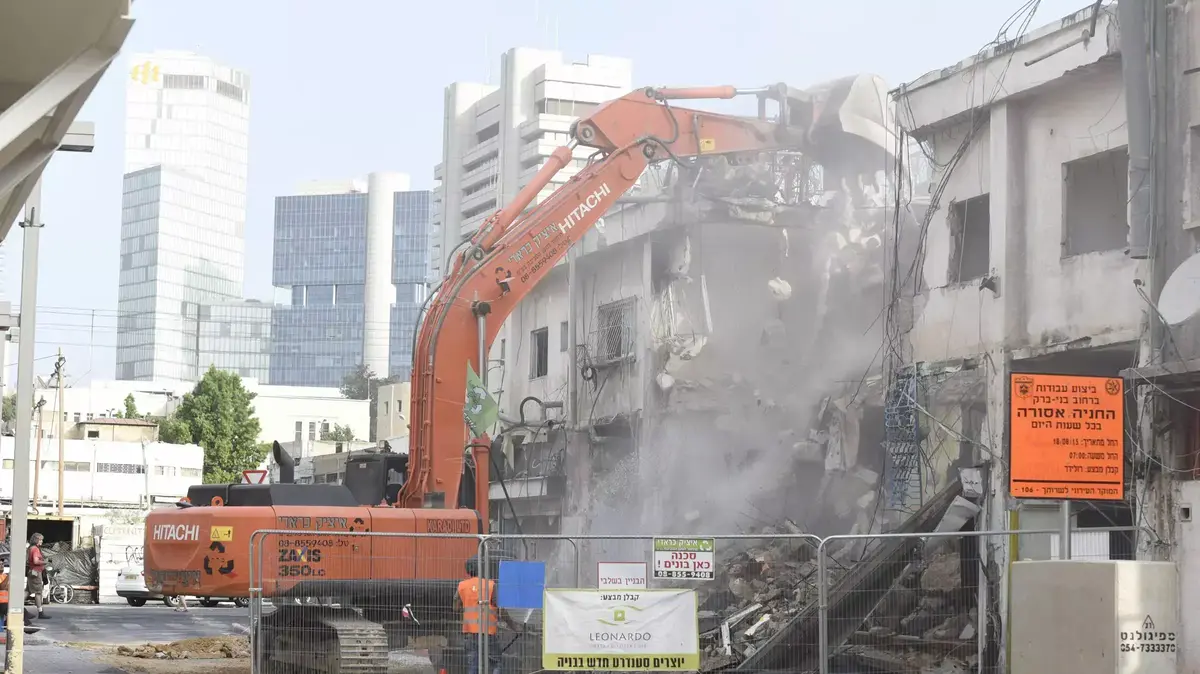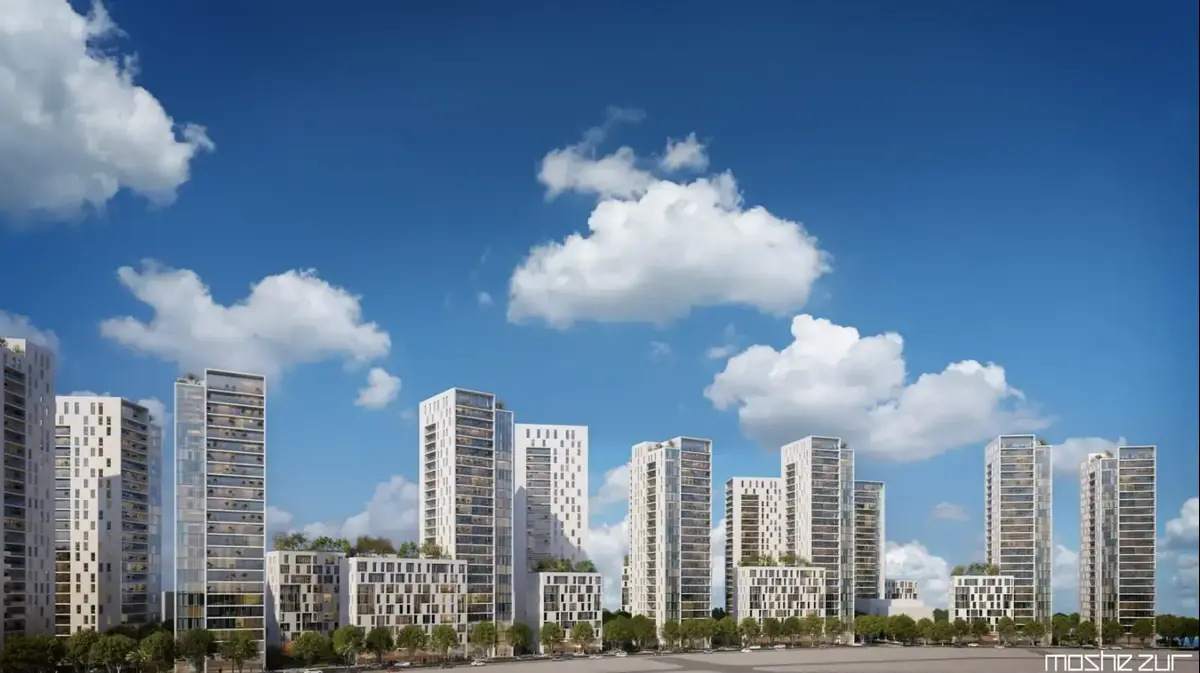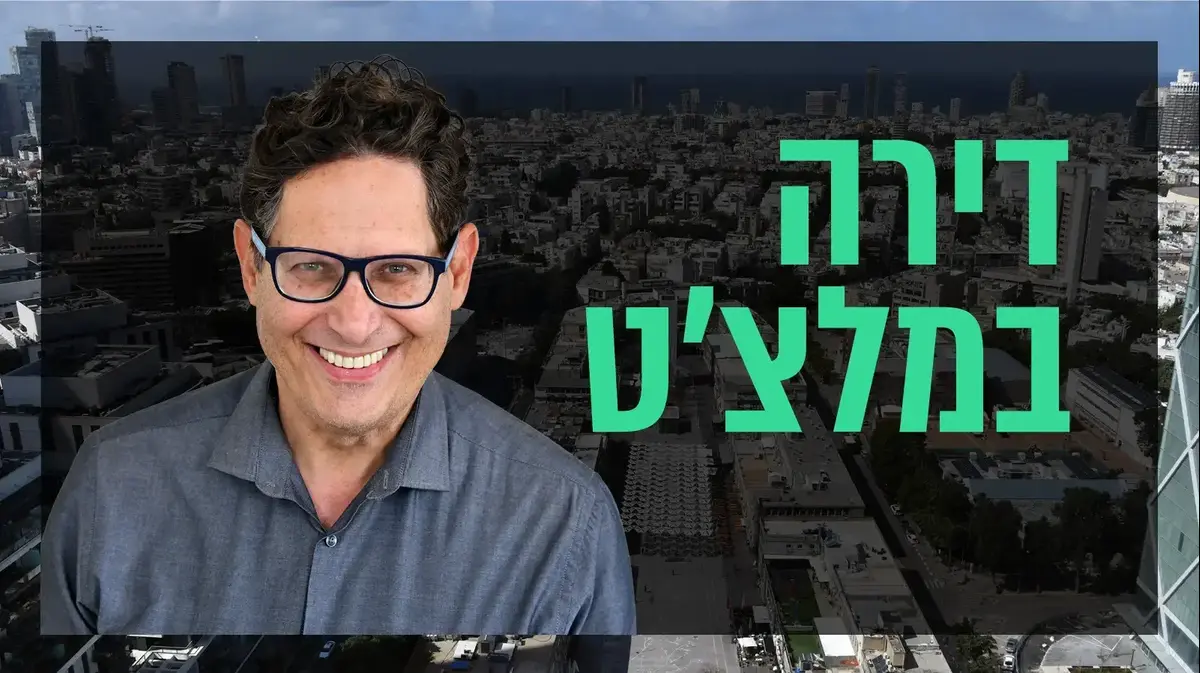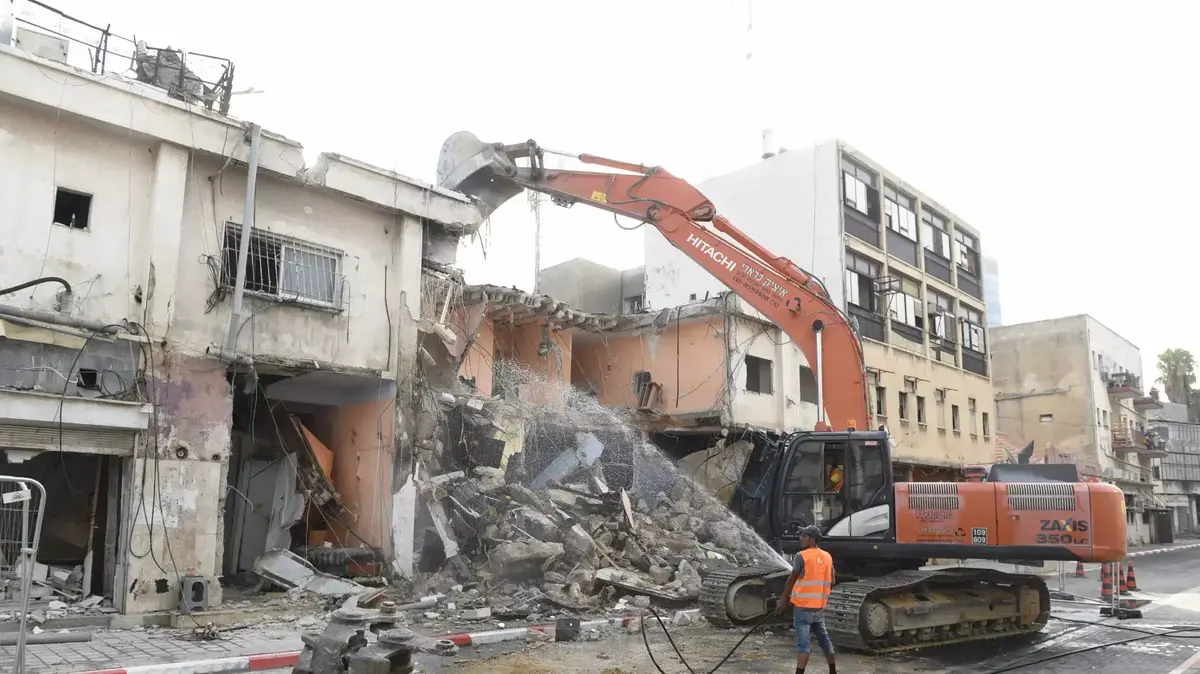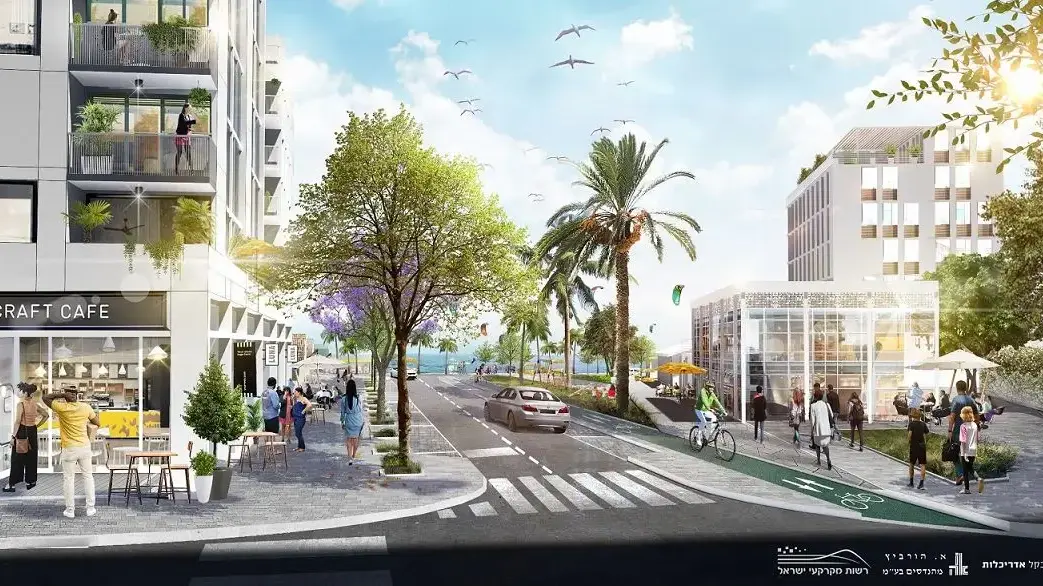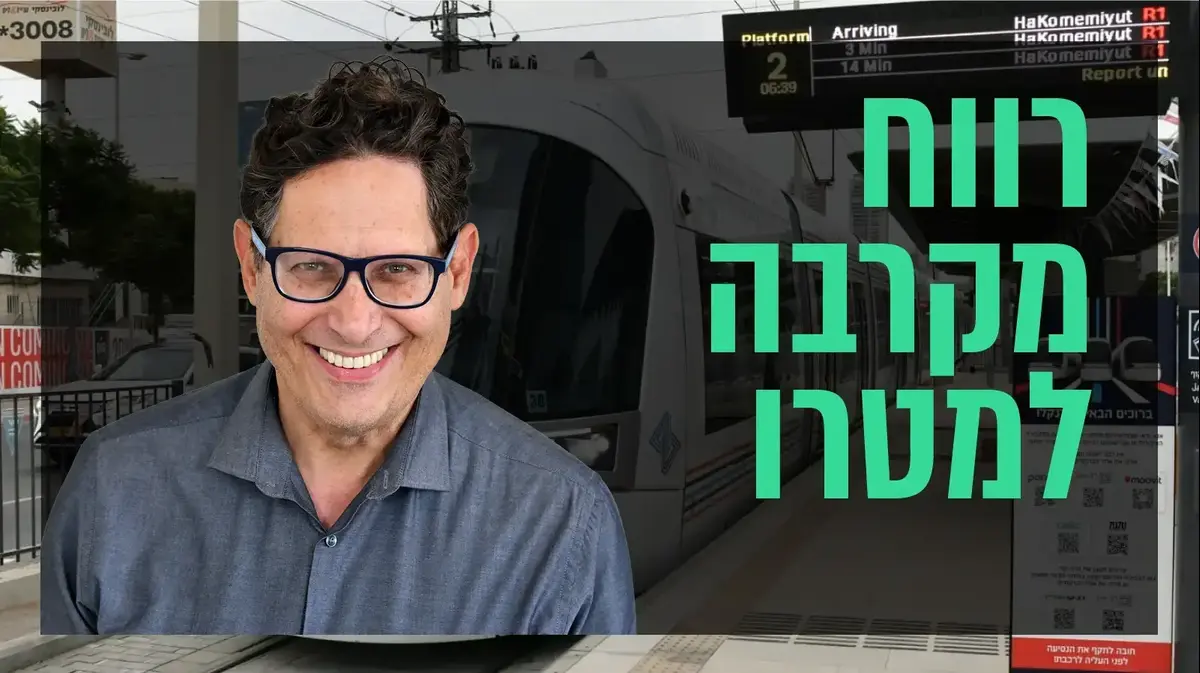The bustling symbol of street shops: Ordea Square on Bialik Street in Ramat Gan before the renovation taking place there (Photo: ShutterStock)
The official definition of a shopping center is: "One or more buildings that constitute a complex of stores representing merchants, with connected walkways that allow visitors to walk from unit to unit."
Informally, these centers are the center of communities, the basis of retail economies and a social and family gathering place in every locality or region where it operates.
In recent decades, the mall model, which originated in the USA somewhere in the 1950s, has spread throughout the world and become a full modern retail trend. Despite its presence in every medium-sized modern city, the mall in the business mix as it was created and operates to this day is at a critical point. New entertainment and leisure trends alongside Changing global trends have caused malls to change the role they play in the lives of residents. Now, when consumers visit them, they are looking for entertainment experiences that go far beyond traditional shopping. The e-commerce revolution and the rise of digital technologies are also fundamentally reshaping consumer expectations and making it difficult for them to function more.
The goal: to stay relevant.
The TOGO chain operates both in stores and in malls (Photo: Yehats)
Faced with the many challenges, the street shops seek to remain relevant.
The assumption is that in order to survive in the digital age and in light of the attractive advantage still found in shopping malls, they will need additional help from the local authorities.
Help in the form of promoting urban renewal programs that will allow access to them, will make the boulevards shaded, pleasant for walking and those that include a wide commercial and leisure offer.
The streets will have to move away from over-reliance on retail and take into account all the services that the local community needs - places of entertainment, medical centers, barbershops and more.
Successful central streets will find the right balance between different types of uses, create new alternatives, change the commercial mix and lead to a change in the nature of the street, and with these changes the habits of the local population will also change.
In light of the crossroads where the current mall model is located, the question arises as to what space is left for the street shops located on the main and busy streets in the various cities, especially against the background of the future renewal which is the pinnacle of the ambitions of every large city.
If the malls are reinventing themselves, what else is left to offer the street shops?
Does the new urban architectural planning, which includes a development that reduces the parking areas, actually decide the future of the shops in Lao Chi, or will it actually allow them to go through a renaissance?
More in Walla!
10 weeks and you will know how to swim long distances!
At TI we commit to success!
Served on behalf of TI SWIM
So what do the street shops really have to offer yet?
"There are many advantages in operating a street store such as meeting diverse customers - residents of the city center, employees of the area, tourists and other passers-by," says Ayelet Pichon Oz, VP of Marketing for the TOGO shoe chain, which operates branches both in commercial centers and as street stores , therefore knows how to identify well the differences in consumer culture. "This diversity makes it possible to reach a wide audience and thus also creates a larger customer base that will return to you in the future.
The storefronts of the street stores attract the eyes of pedestrians throughout the day, which can lead customers who did not intend to make a purchase at that moment but liked a certain item they came across to decide to enter the store."
The relevance will always remain.
Ayelet Pichon Oz (Photo: Yehats)
Pichon Oz says that the relevance of street shops will always remain: "We saw this during the corona period, which strengthened them and their vitality. Over the years, many streets in different cities have become established as central shopping streets, and there are businesses and service providers that operate only on the street. Rental costs in shopping malls and shopping centers are high, therefore there are Many of the business owners prefer to open street shops. They have a charm expressed in the personal relationship and nostalgia that is pleasant to embrace, they serve a homely atmosphere and allow regular access to the residents of the area, thus creating local loyalty. This is much less true in malls and large commercial centers, while we see it more in street shops of the TOGO chain, such as in the branch on Jabotinsky St. at the corner of Bialik in Ramat Gan."
Unlike the nationwide TOGO chain, the prestigious and family-owned furniture brand "Nisoo Furniture" has been operating for nearly 50 years one street store located on Rabbi Yitzhak Yedidia Frankel Street in south Tel Aviv, since the days when the street was called Emek Jezreel.
Most likely, we will not be able to find a store that has been operating for so many years in the same location in a mall or large commercial center.
The carpentry and furniture shops are perhaps the most identified with the view of the street shops and the general public will often seek to purchase the furniture traditionally from there.
Fifty years in the same place - and they don't intend to move.
They tried furniture (photo: Yachats)
"The street stores have something special, they radiate authenticity and warmth, and in many of them, especially those with a long history," says Yossi Adut, the son of Niso Adut, who founded the store and works there to this day and is one of the owners of the brand, "there is a deep-rooted affinity for the street or the area where they are located and You get its character. There is also a connection between the tenants around the stores, in fact even my parents knew each other in our neighborhood. My mother Lili lived across the street from the store and my father, who worked at the store here, used to watch it from the window. One day they formed a connection and the rest is history."
Edut, does not believe that malls have a significant advantage over street shops: "Although the malls are indoor and therefore more suitable for spending time on hot summer days or rainy winter days, the street has a happy and lively atmosphere and it generates much more interest. The voices, the people, the traffic that changes every day, give It has a special charm that cannot be found in the closed shopping malls. There is no real substitute for strolling down a boulevard of shops, breathing the fresh air, stopping to eat ice cream or drink coffee and skip from store to store."
Edut is not afraid of the renewal process: "In my opinion, the new urban architecture does not harm the street shops, since turning the streets into boulevards and pedestrian streets into walking instead of roads is better than the current situation. The new construction gives the feeling of a bounded area and contributes to the pleasant atmosphere of the street. It gives it a different character and shopping and entertainment experience Completely for the consumer. It's true that unlike parking in a mall, on the street the customer has to park the car in a certain area, perhaps even far away, and then return to it, but today's customers come to the stores to spend quite a bit of time there and get an impression, not to stop momentarily and move on."
Will street shops continue to succeed?
Depends where.
Arad Textile (Photo: Public Relations)
Unlike Madot, Lior Cohen, the VP of sales and manager of the "Arad Textile" chain, which in recent years has opened a chain of branches and also markets to the best luxury hotels in Israel and abroad, thinks differently. It is very important to strengthen the commercial areas in the streets.
Establishing a pedestrian walkway and reducing parking spaces do not help the growth of street shops and harm the access roads.
Planning a pedestrian walkway requires estimates for the establishment of parking lots within walking distance.
It is part of the city's development and architectural moves of this type should be backed by economic and marketing analysis.
The malls provide parking lots, while the street shops do not have this privilege and depend on municipal initiatives."
However, he believes that there is a place for both street parking and shopping malls, and they should not come at the expense of the other: "There is a place for both but again very much depends on the location. Is public transportation developed and passing through the area where the store is located, is there supporting infrastructure such as parking nearby , comfortable sidewalks, signage and lighting. In most cases it is possible to distinguish between the audiences of street shops and malls, these are audiences with different needs."
Cohen also emphasizes the warm and personal relationship created between the street shops and the surrounding tenants: "Arad Textile has one street store located on Bialik Street in Ramat Gan, where the street shops form a strong and bustling commercial center. In a dense city like Ramat Gan, consumers will prefer a store in their residential area and not a mall far from it One of the most prominent advantages is that the residents of the area can reach the store by walking or cycling. A street store also serves, among other things, the nearest neighbors and neighborly and close relations develop between the store staff and the residents of the neighborhood."
New buildings?
Welcome.
Daniel Ben Yishai, manager of the La Charola Butchery (Photo: Yehats)
One of the oldest neighborhoods in the west of the city of Jerusalem that also receives a prestigious attribution is the Bekaa neighborhood.
Over the years the population of the neighborhood changed, the public became very established, Anglo-Saxons and immigrants from France arrived and settled in the neighborhood with a traditional religious character.
The businesses in the neighborhood are among the economically stronger segment due to the location and yet maintain the character of traditional commerce.
In the neighborhood, a meat deli that is also used as a butcher - strictly kosher, "La Charolais" - is being run in Gaon.
Recently, plans began to advance in the neighborhood to renew its face, bearing in mind that in Jerusalem the subject has a significant priority on the part of Mayor Moshe Leon.
"This is a blessed move," enthuses Daniel Ben Yishai, the manager of the butcher shop, "The neighborhood does have a high socioeconomic profile, but most of the tests are old and need regular maintenance all the time. You only have to imagine what the neighborhood will look like and how fun and pleasant it will be to provide service here to residents with New buildings, with the possibility of making the place more accessible and making the entire population enjoy our produce. It is true that we feel as if the commercial issue is different from most places in the city, but in the aspect of years ahead? Can do good for everyone."
When a well-kept place is more inviting.
Beit Stern (Photo: Public Relations)
In the heart of the prestigious Mamilla Boulevard in the city, right at the seam between East and West Jerusalem, there is a building for preservation, "Beit Stern" named after him.
The area is part of an urban development plan that was completed in the second decade of the early 2000s, with the accessibility of the shops on the boulevard and the other businesses selling food reminiscent of the direct and unmediated connection we once knew in the business world.
Shlomi Turgeman, who together with a number of partners owns the Joy Meat Restaurant, along with the Hamburg Hamburger Restaurant Berlin and the Italian restaurant Lucina in Mamilla, describes from his point of view: "When the place is cared for and invested in, there is no doubt that it is much more inviting to the general public. We took a step forward and invested Even in the depth of the culinary side, thanks to the high traffic and healthy competition in the area - to be the best in the most convenient and good place. I am convinced that the more the municipal authority encourages cultivation and renewal, the better it will be for the street shops. The culture of shopping malls has somewhat swallowed traditional commerce, and precisely here in Jerusalem the municipality has an interest in returning Business owners have the power to provide quality and correct service to customers."
Turgeman also emphasizes the interface with the customers: "When the service is high-quality, there is a return of customers even in shopping malls, but when you can go directly to the restaurant and the entrance is separate, the feeling that is created is more authentic."
Tradition is the name of the game.
Shai Naor, the sheikh's meeting (photo: Yachats)
"For over 30 years, our branches are located on the street. We have always been in contact with the customers and worked on the traffic of the passers-by", says Shai Noor, the owner of the Jerusalem bakery chain "The Sheikh's Meeting" and adds, "We hope that with the development of the urban renewal projects we will see traffic bigger, and so more people will be able to meet in our special authentic branches, eat the traditional pastry and drink our hot orchid in the winter."
Noor sheds more light on the subject: "Our flagship branch on Haumann Street in Telfift is in a central location for customer traffic. This is an area that the municipality is planning to change as part of urban renewal in order to maintain more pleasant commercial areas and also provide more residential options. In my view, this is a welcome thing."
The renewal will affect trade.
- A commercial center designed by Reuben Interior Architects, located at the exit of the subway that will be built in Raz, architecture in Raleigh-Levitsky-Kasif (Photo: 3Division)
And what was said in the sector of professionals entrusted with the urban renewal process.
Interior designer Karen Reuvani from the office "Reuvani Interior Architects", whose office is responsible for planning the G malls in Kfar Saba, Tzamerot in Tel Aviv and these days they are planning the commercial area of the underground station in the subway at Jabotinsky corner Ben Gurion in the Raz, explains: "Urban renewal will affect on street trading.
In evacuation-construction, the reference is to a number of buildings, while the maintenance is inclusive and does not refer only to residences, but to the entire environment.
When the process is in a central area, they also provide it with a commercial space that functions as an open mall.
The commercial centers are part of the street shops - they develop the area, provide a platform for outdoor cafes, parks and, as mentioned, also shops."
A different experience with a community character.
Karen Reuvani (Photo: Sharon Dotan)
So how will this affect the existing stores?
"There are also stores that existed in the past, even before the urban renewal, and these come to trade in a new and more modern format. They are joined by new stores with a new character, with a different appearance. The goal is to provide a different experience with a community character, when the neighbors go out, they will be part of the community. These Not huge supermarkets, but stores with an updated character."
Reuvani agrees that the boom in shopping malls has waned: "Today, Israelis prefer the small community-neighborhood centers that are usually open to the street and not closed. We have a country with very favorable weather, which affects the preference. Both merchants and customers have understood the advantages of street stores. The entrepreneurs turn to the community That's why I estimate that community commerce will definitely gain momentum and continue to develop, all the more so in new neighborhoods."
native
Economic business and real estate
Tags
stores
urban renewal

